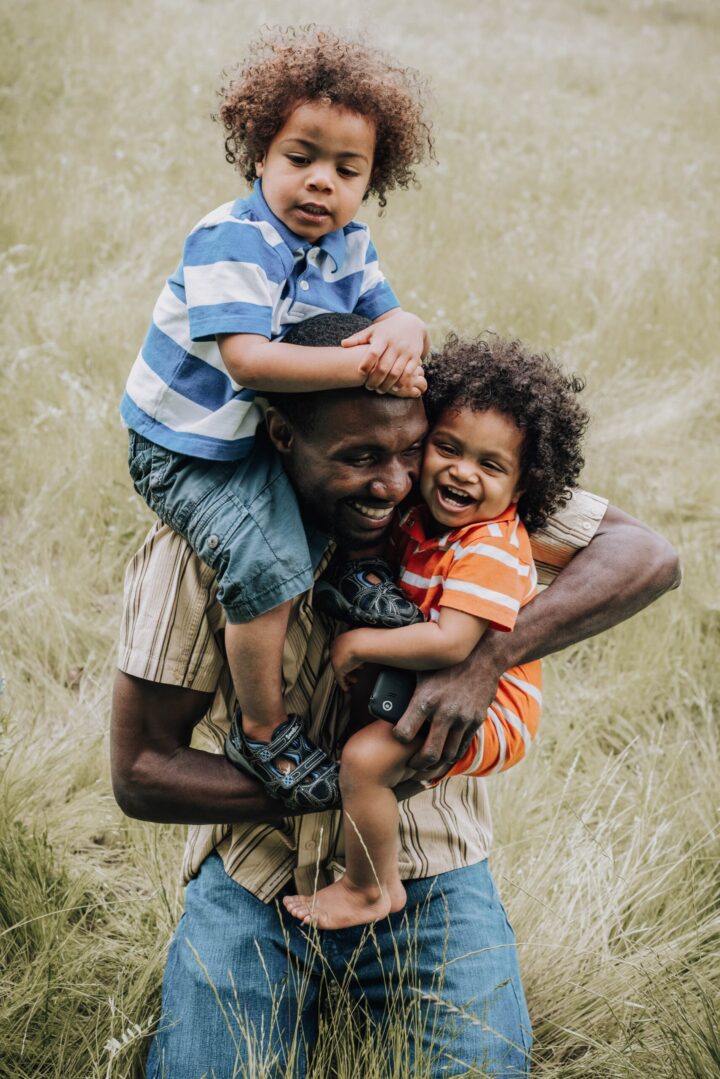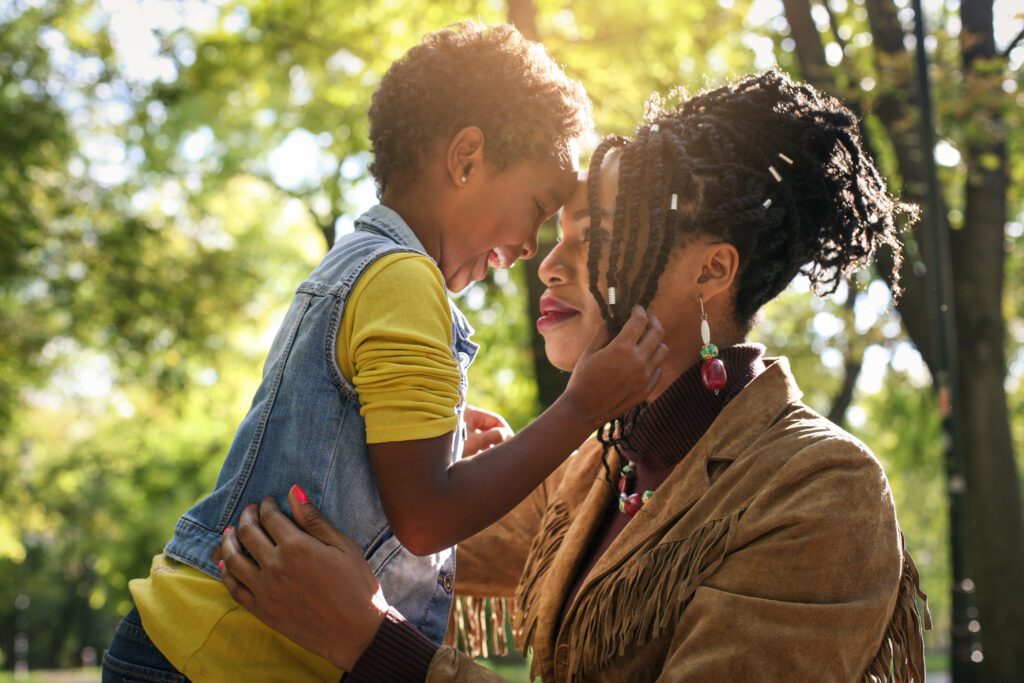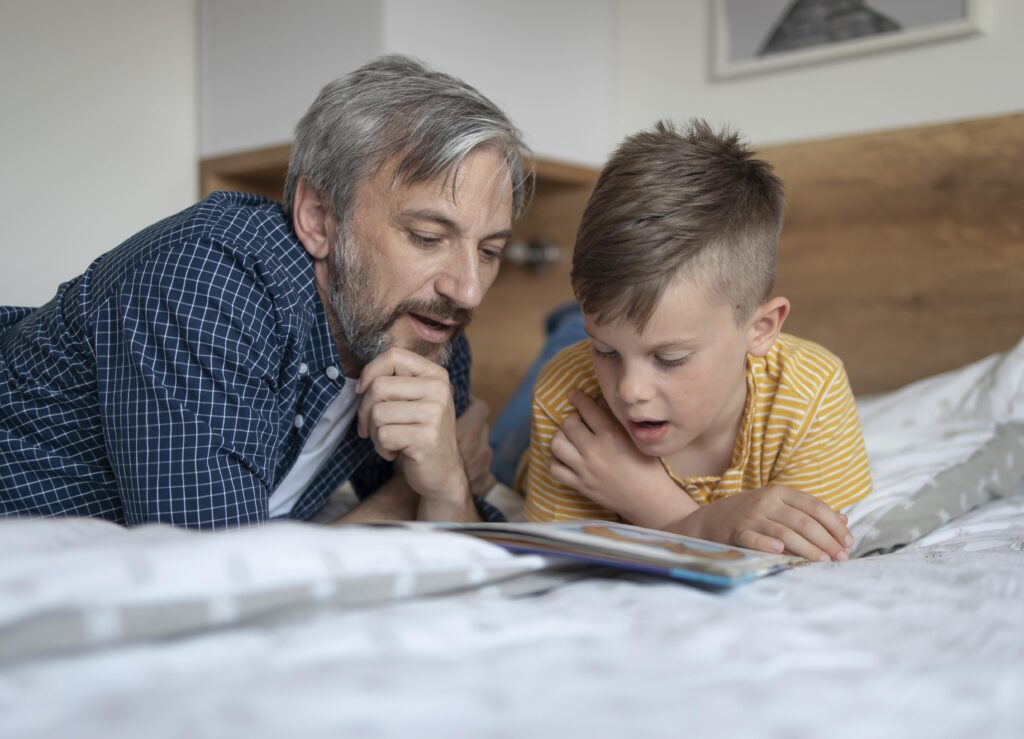
“I will never forget when I was in the second grade and my dad said to me ‘I’m still learning how to be a good dad’,” shared Amy Jones, Lena Pope Early Learning Teacher. It’s so easy to fall into the false logic that perfection is the goal as you’re raising kids. Instead, Amy reminds us that going back to repair with your child after a mistake holds incredible weight. “As caregivers we have the power to teach kids the skill of going back to say things like ‘I’m sorry I moved that. I didn’t know you were working on it. Next time I will ask before I put something away.” It’s so empowering when grownups show ‘I need to start over too. I need a re-do.’ We can help kids realize that we all make mistakes, and no one can model perfection because mistakes are a natural part of life.
It is ok to take a moment before you react, to wait to respond to something that happened earlier. “One way we use re-dos in our classroom is through a time machine. It allows us to go back and have conversations again and problem solve for the future,” noted Arsha Jones, Lena Pope Early Learning Teacher. Modeling for our kids how to do that with their peers is important, but it is also important to model the behavior as caregivers.
One goal of Lena Pope’s programs is healthy social and emotional development. We believe talking openly and honestly about emotions and learning how to move between feelings and communicating your needs are early preventions to depression, anxiety, and suicide. Teaching children the skills to recognize and name their emotions and talk about how they are feeling gives them a voice and provides an avenue to ask for help and talk with a trusted adult about how they feel. It takes a lot of practice and repetition. But the big question for caregivers and those of us who are not trained in curriculum like Conscious Discipline is “how can I teach this skill?” Luckily, Lena Pope Early Learning Teachers Amy Jones and Arsha Jones (no relation) have practical tips & scripts we can use.

Normalizing feelings
It is important to make it normal to feel lonely or sad at times and understand that feeling lonely can impact your thoughts and behavior. Sometimes the focus is too heavy on happy or sad feelings when there are a range of different emotions we all feel. Talking about feelings such as disappointment, frustration, excitement, and joy are just as important.
Remember, no one does this perfectly. All of us– adults and kids alike – have days where we can manage and recognize our emotions and other days where things feel out of control.
“You are not mad; mad is your feeling. You are feeling mad, but you are not your feelings.” Arsha shared this snippet from a conversation with her 10-year-old when talking about emotions. At this age, her daughter knows to say, “I am feeling mad” and Arsha will ask her, “what do you need to do when you are feeling mad? You are not stuck in mad so how can we move to another emotion?” This follows one of the scripts Lena Pope’s ELC teachers learned from Conscious Discipline: “When I feel _____, I need _____”.
Talking with your child about their emotions
First, you must be aware of your own emotional state. You cannot take your child to a place of calm if you’re in a heightened emotional state; they can sense that. Second, there are lots of little things you can do regularly that will add up for your kids. Simple introductory phrases like, “I notice you seem frustrated”, “I think you are feeling angry”, or “You were hoping for the green plate” can start a conversation and allow your child to use their voice to tell you how they are feeling. When you tell a child “I notice…” or “you seem…” it also communicates to them that you see them, you are paying attention, and you care enough to talk with them about it. These conversations can start simply with “I noticed you seem to be playing by yourself a lot lately. Why is that?” Our children want us to notice they need something. Honestly, don’t we all want a trusted person to notice when we need something?
Using Transitions to Connect
One difficult part about parenting is managing all the transitions – from pick-up to dinner to bedtime it can feel like all you do is move your child from one activity to the next! But there are opportunities in those transitions to connect with your child. Time in the car can be a good time to ask:
- Tell me about something that happened today when you felt happy/sad?
- Tell me about something funny that happened today.
- Who did you play with at recess?
- It sounds like you’re feeling _____. That sounds difficult. You can handle this.
These simple statements can lead your child to remembering something that had them feeling a certain way and then you can talk about that. “You felt sad when the girls at the playground said you couldn’t play with them? That would make me feel sad too. Let’s practice what you can do next time.” And you can talk through what your child can say in the future, so they feel equipped to handle that conversation. And using phrases like “you can handle this” and “you’re doing the best you can” offers encouragement and builds

Arsha is a big advocate of starting with a book. “Let’s read this book and take it page by page. I notice in this book that this girl is feeling lonely. What do you think about that, or have you ever felt lonely?” Arsha said. “It helps bring the child’s attention to that emotion and allows us to talk about what it would feel like when you feel lonely and someone notices. A lot of times the noticing aspect is a good portion of what is missing, someone to notice their behavior has changed, or someone has not been themselves lately.”
Take time to talk about and reflect on your day too. Kids can notice when we have had a tough day, and we can share age-appropriate information with them about what made the day difficult.
We can’t shield our kids from every hard thing they will experience. But we can give them the skills they need to handle difficult situations. Lena Pope’s programs focus on emotional and social skills in order to set kids up to have happy and successful futures. We want to equip caregivers to model and teach these skills to their kids as well. Building emotional resilience in both kids and adults leads to a healthier, thriving community.
Recap
- Remind yourself and your child: nobody is perfect.
- Go back and re-do.
- Be a noticer. “I notice you are…”
- Normalize that all kinds of feelings are a healthy part of life.
- “When I feel…I need…”
- Give your child the language to use.
- Role play conversations and scenarios with puppets or talking with your child.